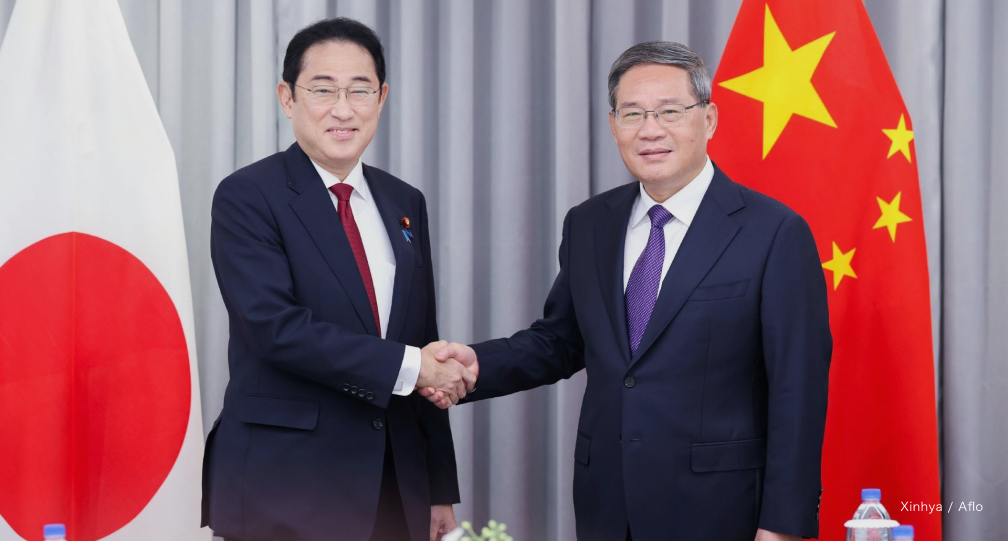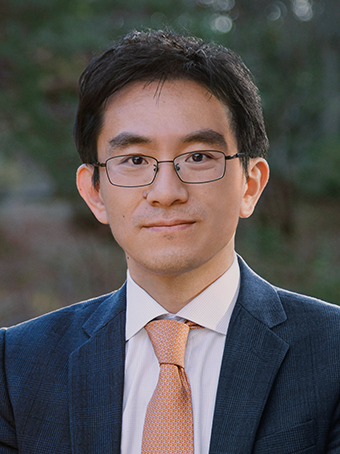Will Japan and China’s relations continue to stagnate?

At the Japan-South Korea-China summit in Seoul in May, a smiling Chinese Premier Li Qiang shook hands with Prime Minister Fumio Kishida, and Liu Jianchao, minister of the International Department of the Chinese Communist Party, made nice with his Japanese counterparts on his visit to Tokyo the same month.
However, the level and frequency of China’s communications with Japan are not on a par with those of Western countries. And even though high-level exchanges between Tokyo and Beijing have resumed, there has been zero progress on pending issues. The Chinese Foreign Ministry spokesperson still regularly berates Japan over Taiwan and the release of treated contaminated water from the Fukushima No. 1 nuclear power plant. What, then, is wrong in the relationship?
Online public opinion in China
In China, relations with Japan have always been a thorny subject: Any conciliatory attitude toward Tokyo, a former aggressor, is seen as politically problematic. In the 1980s, then-CCP General Secretary Hu Yaobang was ousted from office because of his pro-Japanese stance. In addition, past anti-Japanese demonstrations in China have erupted into anti-government sentiments.
A Chinese friend who used to work under former Premier Zhou Enlai once told me that the normalization of diplomatic relations between Japan and China in 1972 was made possible by the CCP governing China. The party leadership at the time decided not to seek compensation from Tokyo and educated the Chinese public to distinguish between the Japanese people and militarists from the past.
My friend stressed that the Communist Party’s grip on power enables policies to be decided and implemented without being swayed by public opinion.
That has changed. Many people in China — as in other countries — no longer get their news from traditional media such as newspapers and television, which in China’s case are government mouthpieces, but from the internet and social media. This means that party propaganda does not penetrate the public like it used to.
Chinese officials are sensitive to public opinion trends that emerge in the online sphere, despite this being tightly controlled. Given strongly negative sentiments toward Japan expressed on the Chinese internet, Beijing cannot help but craft hard-line policies and sometimes take advantage of this stance.
Shifting issues
Issues at the heart of Japan-China relations have also changed. For a long time, the CCP staked its legitimacy in the narrative that it had liberated China from the Japanese, founded a new nation and improved living standards through economic growth. Most of postwar relations between the two countries centered around issues related to history and Taiwan.
Since the late 2000s, however, maritime issues have come to the fore. China has intensified unilateral resource development activities in the East China Sea and provocations by Chinese vessels in the waters surrounding the Senkaku Islands have heightened Japan’s sense of insecurity.
Once Xi came to power, he began to see his government’s legitimacy as rooted in China’s strength, declaring at the 19th National Congress in 2017 (which ushered in his leadership) that China had “stood up, grown rich, and is becoming strong.” On the diplomatic front, Xi also started to call for his country’s interests to be advanced. China’s increasing assertiveness has led to frequent clashes with Vietnam and the Philippines in the South China Sea and strained relations with Japan.
In addition, the Xi administration has sought to increase its global influence through great power diplomacy and to reform the international order by promoting its values. In contrast, Japan seeks to defend the existing rules-based international order and work with Western countries to promote universal values. Japan is wary of Xi’s Belt and Road Initiative (BRI) and “community with a shared future” scheme, finding it difficult to cooperate with China. Simultaneously, Japan has become less of a priority for Beijing in international diplomacy.
The rivalry between the United States and China has also impacted Japan-China relations. The U.S. is determined to contain Beijing by working with its allies — for example, Japan cooperates with Washington to restrict the export of advanced technology to China, putting it on a collision course with Beijing.
Furthermore, Xi has strengthened the CCP’s control over foreign policy and concentrated authority over the party in himself. The leader’s role in diplomacy has also been bolstered and dialoguing with him is a necessary requirement to developing bilateral ties with China.
Despite this, relations with Japan are essentially fraught with political risks and the Chinese bureaucracy is timid to promote Xi meeting with his Japanese counterparts. Furthermore, the political pipeline between the two countries is thin, making it difficult to pursue top-level summit diplomacy. And yet, if Japan-China relations do not pass through Xi, the prospects for any progress are close to none.
What can be done?
The relationship is thus in a state of structural stagnation. One summit meeting between the respective leaders has not led to progress on pending issues or sustained dialogue.
That does not mean that both capitals should resign themselves to the status quo. To sustain the growth of its economy, Japan cannot pass up China’s massive market of 1.4 billion people, high-quality human resources and advanced technology.
The first thing the two countries should aim for is to build a stable dialogue. When I was stationed in Beijing a few years ago, several Chinese intellectuals told me, frankly, that to improve relations with Japan, China should first improve ties with the U.S., and that Japan’s importance in Chinese foreign policy is diminishing.
While China’s relations with the West are also mired in friction, Beijing tries to maintain communication channels open with the U.S. to orient its broader foreign policy and avoid conflict. And although Europe is close to Washington, China continues to dialogue with the European Union because of the bloc’s differences with the U.S. Therefore, it is necessary to make China feel the need to communicate with Japan by showing that Tokyo’s position is unique.
Economic exchange should also be promoted. China is Japan’s largest trading partner and many Japanese companies benefit from the Chinese market. Activities with China are being reviewed for economic security reasons but, at the same time, Japanese industry is trying to utilize China’s capacity for innovation while preparing for risks.
China is also actively strengthening economic ties, with many local government officials and Chinese companies visiting Japan.
Uncertainty in the bilateral relationship should also be reduced. In particular, Taiwan is an issue of national legitimacy for China — which explains Beijing’s heated reactions to it. Many Taiwanese people do not want independence but to maintain the status quo and tensions in the Taiwan Strait do not help Japan either.
Japan’s leverage with Xi
From Japan’s perspective, the Xi administration has some advantages when it comes to managing bilateral relations. Xi’s domestic power base is relatively strong, allowing the leader to make bold policy decisions. Thus, if deemed necessary, Xi could work to suppress public opinion that is critical of Japan and steer the relationship with Japan on track.
In fact, during late former Prime Minister Shinzo Abe’s second term, Japan-China relations reached a postwar high in terms of the width of areas of cooperation and frequency of high-level exchanges. The Abe administration showed its readiness to cooperate on the BRI, provided that China could meet certain conditions, such as accessibility of infrastructure and consideration for target countries’ financial health.
That led to an agreement between the two countries to work together on several fronts, ranging from finance to private-sector cooperation in third countries.
Recently, China has also signaled that it wants to improve relations with Japan. At the Japan-China summit in November last year, the two countries agreed to promote a constructive and stable relationship and work toward a “mutually beneficial strategic relationship.” At the more recent summit in May, Premier Li said that he hoped the two sides would build stable relations and that the Chinese side was willing to make an effort.
If Japan can convince Xi that relations with it are important, the Chinese government will be more proactive in dialoguing with Tokyo and more serious about resolving outstanding issues. Although Japan cannot fully endorse China’s “global initiatives,” it can show its goodwill by saying that these can be considered under certain conditions, or that Japan shares the initiatives’ spirit.
Also, Japan can propose symbolic projects in areas such as elderly care, in which the political stakes are not high. The bilateral relationship may be in structural stagnation, but we still need to do something that stops it from stagnating further.
[Note] This article was posted to the Japan Times on August 12, 2024:
https://www.japantimes.co.jp/commentary/2024/08/12/japan/japan-china-relations-problems-opportunities/

Geoeconomic Briefing
Geoeconomic Briefing is a series featuring researchers at the IOG focused on Japan’s challenges in that field. It also provides analyses of the state of the world and trade risks, as well as technological and industrial structures (Editor-in-chief: Dr. Kazuto Suzuki, Director, Institute of Geoeconomics (IOG); Professor, The University of Tokyo).
Disclaimer: The opinions expressed in Geoeconomic Briefing do not necessarily reflect those of the International House of Japan, Asia Pacific Initiative (API), the Institute of Geoeconomics (IOG) or any other organizations to which the author belongs.
Photo credit: Xinhua/Aflo


Visiting Senior Research Fellow
MACHIDA Hotaka is a visiting senior research fellow in Institute of Geoeconomics at International House of Japan. He joined the Institute in October, 2022. Prior to leaving his role in government, he served as a career diplomat in Japan’s Ministry of Foreign Affairs from 2001 to 2022, focusing on Japan-China relations. He studied at Nanjing University in China and Harvard University in the United States, followed by working at Embassy of Japan in China as second secretary from 2006-2008. After that, he was posted in China-Mongolia division in the Ministry and completed the negotiations with China over the issues of launching the “High-Level Consultation on Maritime Affairs” as well as finalizing the “Maritime Search and Rescue (SAR)” agreement. He also worked in Status of Forces Agreement (SOFA) division in the North America Bureau in the Ministry leading the negotiations with the US on SOFA-related issues. He was counsellor in the Permanent Mission of Japan to the United Nations (2017-2020) and Embassy of Japan in China (2020-2022) covering the Security Council reform and Japan-China economic relations respectively. He holds a M.A from the Graduate School of Arts and Science at Harvard University, and a Bachelor from Law Faculty at Tokyo University.
View Profile-
 Fed-Treasury Coordination as Economic Security Policy2026.02.13
Fed-Treasury Coordination as Economic Security Policy2026.02.13 -
 What Takaichi’s Snap Election Landslide Means for Japan’s Defense and Fiscal Policy2026.02.13
What Takaichi’s Snap Election Landslide Means for Japan’s Defense and Fiscal Policy2026.02.13 -
 Challenges for Japan During the U.S.-China ‘Truce’2026.02.12
Challenges for Japan During the U.S.-China ‘Truce’2026.02.12 -
 India and EU Sign Mother of All Deals2026.02.09
India and EU Sign Mother of All Deals2026.02.09 -
 Orbán in the Public Eye: Anti-Ukraine Argument for Delegitimising Brussels2026.02.04
Orbán in the Public Eye: Anti-Ukraine Argument for Delegitimising Brussels2026.02.04
 Orbán in the Public Eye: Anti-Ukraine Argument for Delegitimising Brussels2026.02.04
Orbán in the Public Eye: Anti-Ukraine Argument for Delegitimising Brussels2026.02.04 Fed-Treasury Coordination as Economic Security Policy2026.02.13
Fed-Treasury Coordination as Economic Security Policy2026.02.13 When Is a Tariff Threat Not a Tariff Threat?2026.01.29
When Is a Tariff Threat Not a Tariff Threat?2026.01.29 Oil, Debt, and Dollars: The Geoeconomics of Venezuela2026.01.07
Oil, Debt, and Dollars: The Geoeconomics of Venezuela2026.01.07 India and EU Sign Mother of All Deals2026.02.09
India and EU Sign Mother of All Deals2026.02.09












